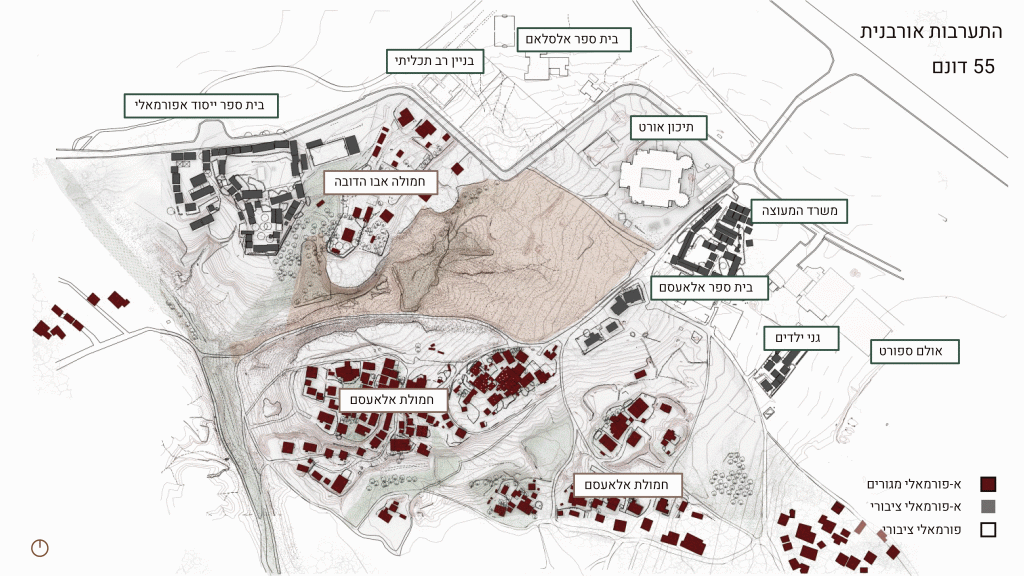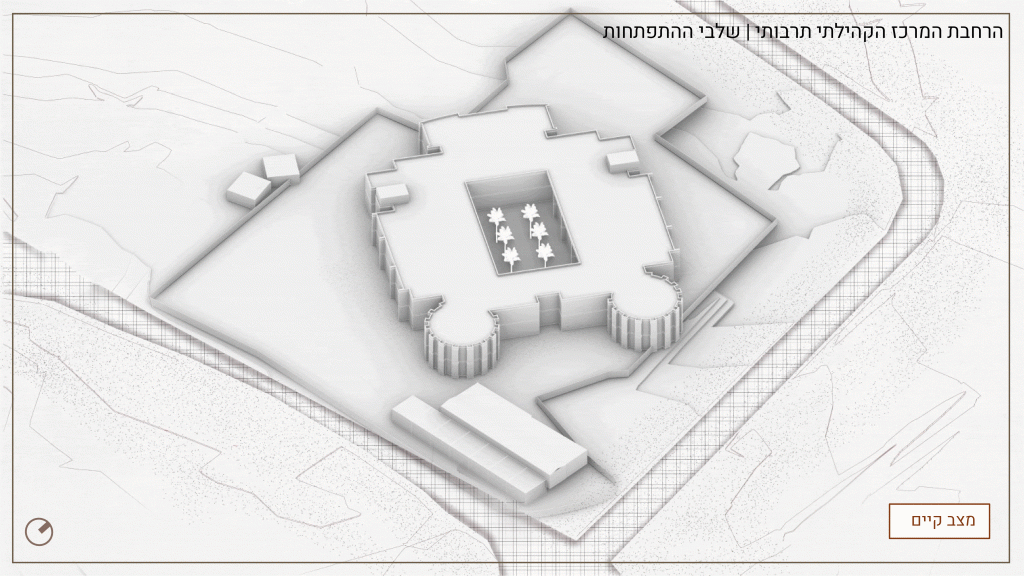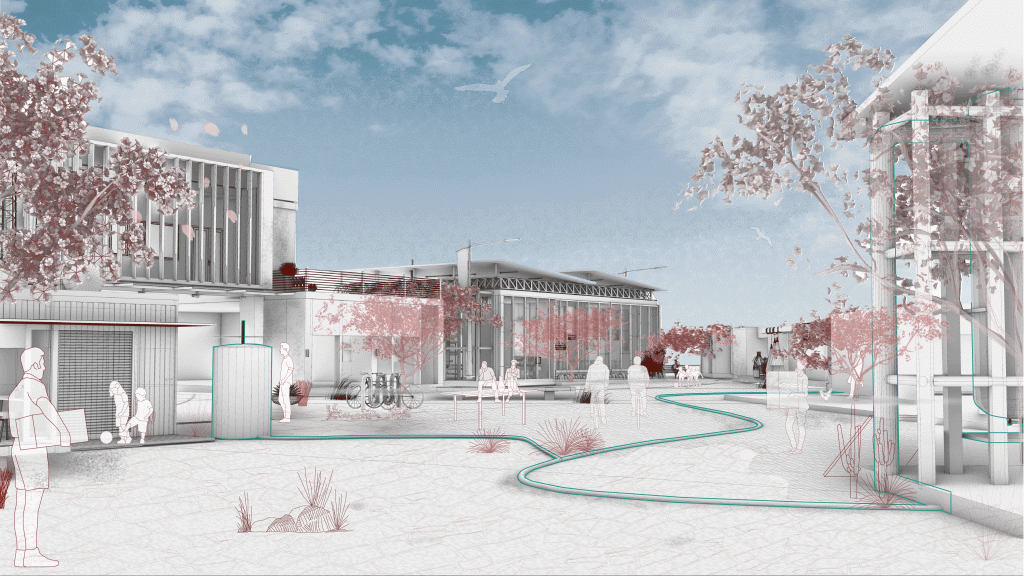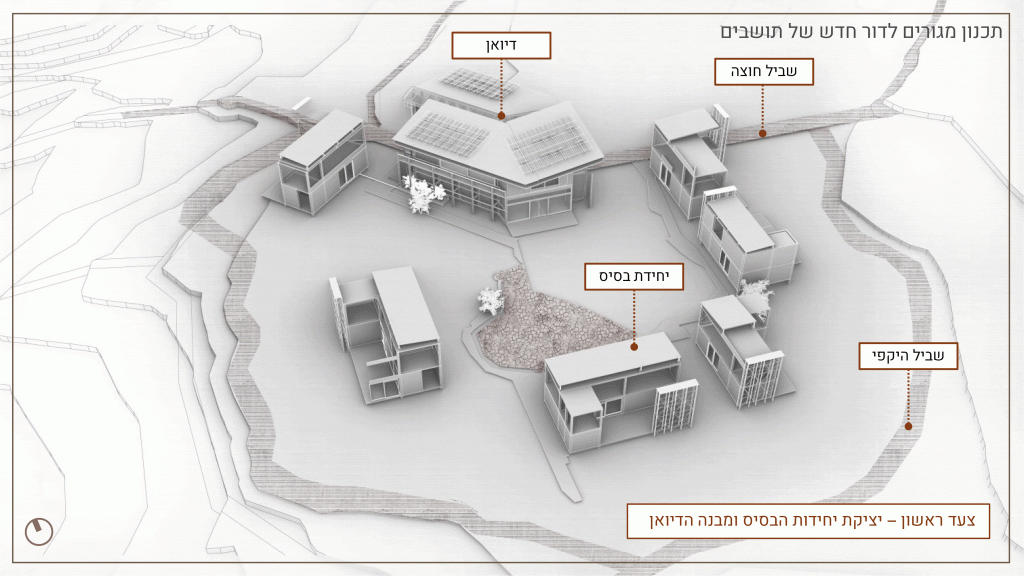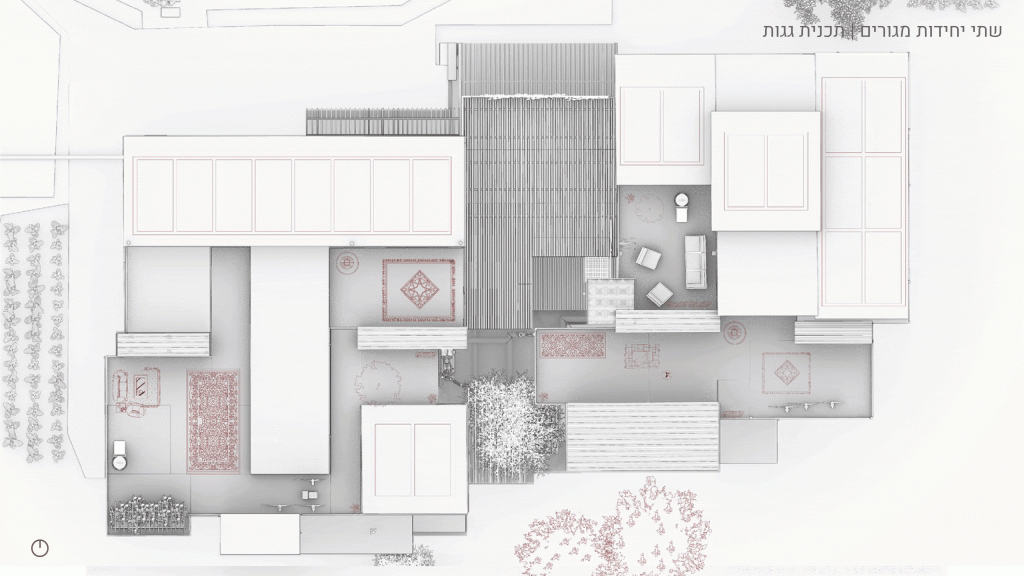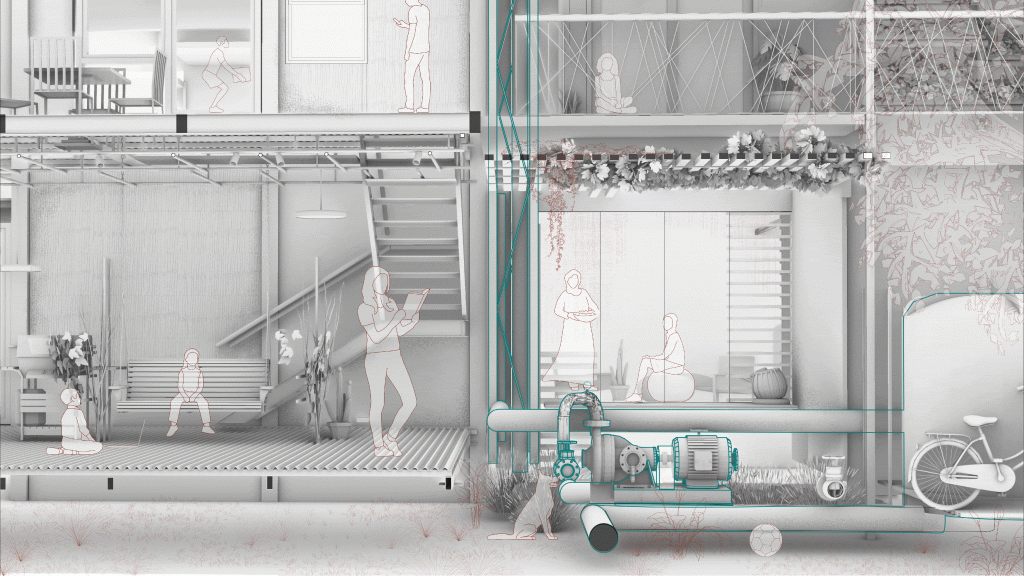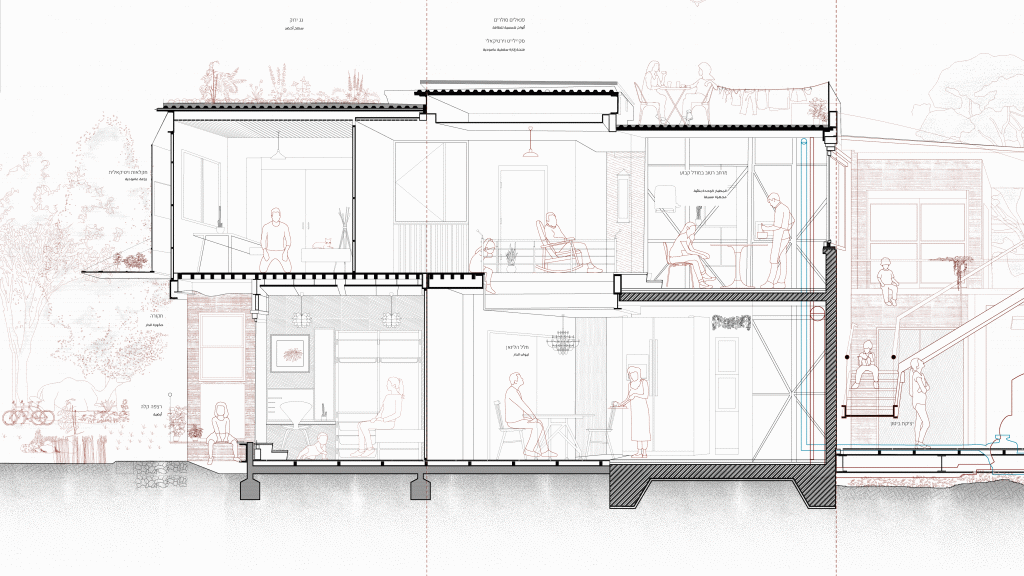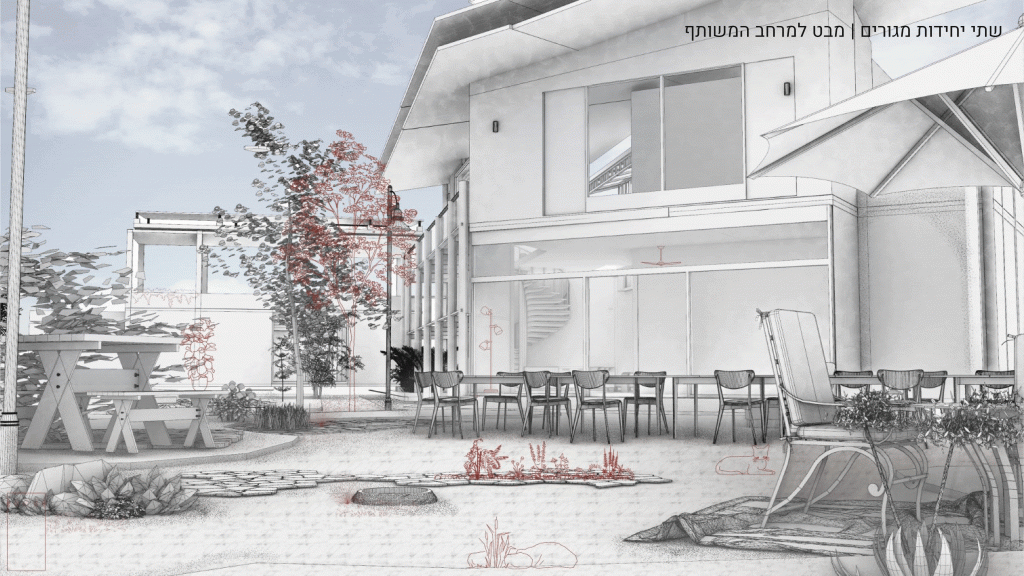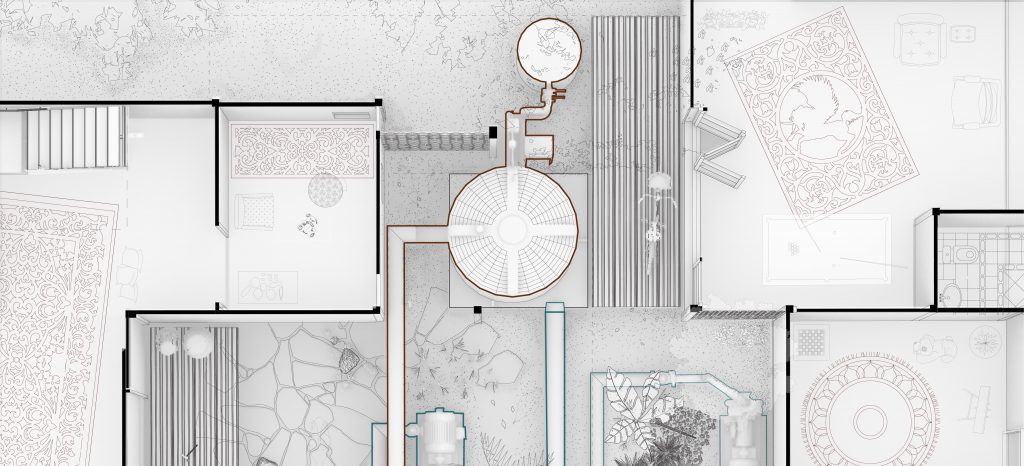
In- Formalization process
The project proposing a new planning paradigm, which fosters negotiations between formal-institutional planning and spontaneous spatial processes in the unrecognized villages of the Negev.

Asma Aburayia
הטכניון- המכון הטכנולוגי לישראל
The project examines the Negev region as a scene of conflict between formal-institutional planning and self-organized and informal processes that have crystallized over time and space. The Bedouin village of Abu-Talul constitutes a case study for such a conflict, which is reflected in the State’s lack of recognition of the village which thereby impedes future development befitting the values of the village. The project examines four spatial dimensions in the village: the expansion of nuclear family housing, the terrain and landscape routes, public buildings, and water infrastructure. Through these four spatial dimensions, it offers a new planning paradigm derived from negotiation and compromise between institutional planning and development tools and the growth patterns revealed as a result of learning about the local society and culture. This dialogue is presented in the planning of the space and the architecture in the seam area between the textures built in the village and offers the inclusion of contradictory and complementary values in the public and private space in the village.

